This is the practical guide to understanding the stages of language development in early childhood, including ideas for fun language learning activities.
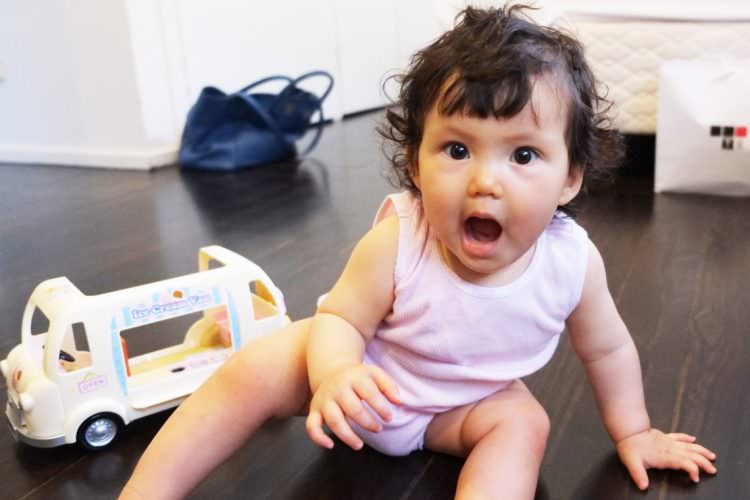
The importance of language development in children
Language is the ability to communicate clearly. The development of language skills support cognitive development and the child’s ability to learn and acquire knowledge. Research has connected delayed development of language to a variety of social and emotional difficulties including anxiety, frustration and ADHD.
Knowing how your baby learns to understand and use words, can help you plan activities that target your child’s current development stage and by doing so can help to accelerate learning.
Language Development Milestones
Early childhood language development follow a predictable series of stages marked by developmental milestones.
Here at ADAM & Mila we have collected all the most up to date research on language acquisition and language skills in young children, and compiled it into an easy to understand guide with lots of practical activities to inspire you and your child.
Comprehension (Receptive Language)
Language acquisition starts much earlier than talking. As early as 5-7 months old your baby may start to recognize the sound of his or her own name, and a month or two after that will start to look for mummy or daddy when those words are used. The ability to understand words, and the ability to follow simple instructions (professionally referred to as receptive language) develops independently of the ability to talk and communicate (known as expressive language skills). However following instructions does depend on, and develop together with, the gross and fine motor skills needed to perform the requested action.
Communication (Expressive Language)
Having the ability to talk back doubles the value of learning a language. Spoken language develops through several stages, but typically by the time your toddler is one year old you will be able to distinguish a few meaningful words from the baby talk and babbling.
In our section on expressive language we cover developmental milestones in all areas of speech development from singing and body language to building up vocabulary, understanding grammar and sentences – and of course speaking and having a conversation.
Learning the meaning of words
Your baby’s first attempts to understand you begin already a couple of months after birth where he or she will start to focus on you when you are talking, staring at your eyes and lips.
It will take another while and quite a lot of repetition before your baby truly recognize any of the sounds you are making. Often the first word to solicit a clear response is when you call your baby by his or her own name. Followed by the names of family members and physical objects that the baby interact with daily, words like “Bottle”, “Bear”, “Ball” etc. Next are words that your baby hear often but are not concrete physical object, these would be words like “Up”, “Down”, “Big”, “”Small” and so on.
From there you will see that your baby understands more and more, and often will surprise you about how aware he or she is of what you are talking about. By the time your toddler is two years old he or she will be able to recognize complex sentences and have quite a large passive vocabulary.
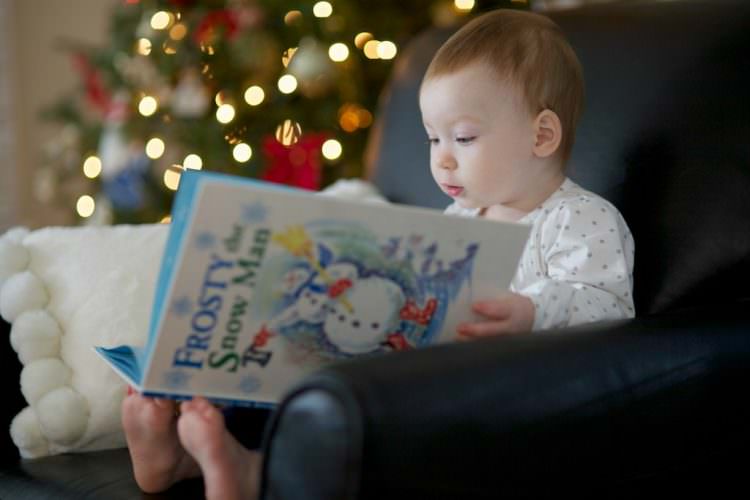
Understanding and following instructions
Responding to a parents request is no simple matter, it requires the ability to understand the words used, to keep the instructions in memory while planning the response, and the motor control to carry out the request.
At first your child will need a lot of hints from gestures – such as reaching out your hand and saying “give daddy the ball” while your baby is already holding the ball. Gradually he or she will begin to develop more advanced planning ability and be able to connect two or more instructions. Between 18 and 24 months old your toddler may respond to the words “give daddy the ball” by looking for the ball, walking over to pick it up and bring it back to daddy.
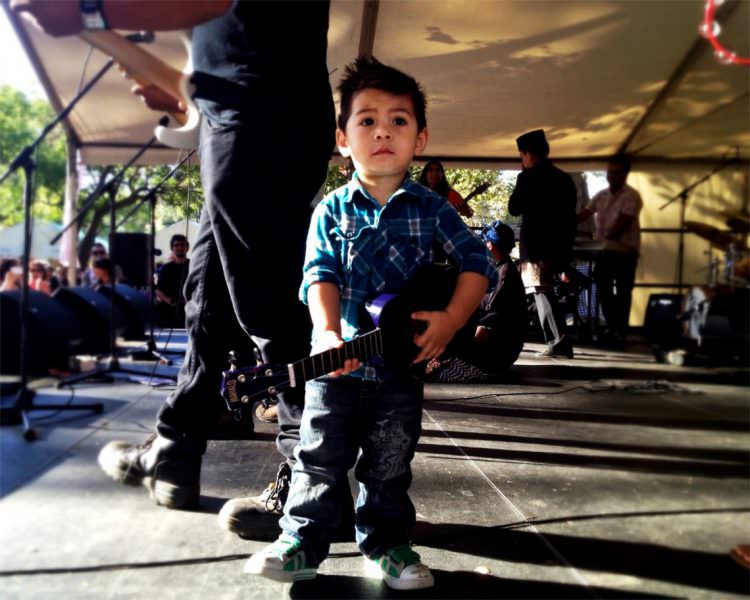
Singing
Rhythm plays an important role in learning to distinguish words and meanings. Singing with your child is a great way to amplify vocabulary retention and language learning – it is also lots of fun!
At first your baby will make small cooing sounds following the rhythm of the music. Later he or she will start to dance by shaking and moving to the beat. Between a year and a year and half old your toddler will enjoy to sing-along by making rhythmic babbles, and by the age of two he or she may very well be singing complete phrases from favorite songs.
Body Language
Communication can be done without speaking, in fact your baby is likely to express needs through gestures earlier than being able to talk.
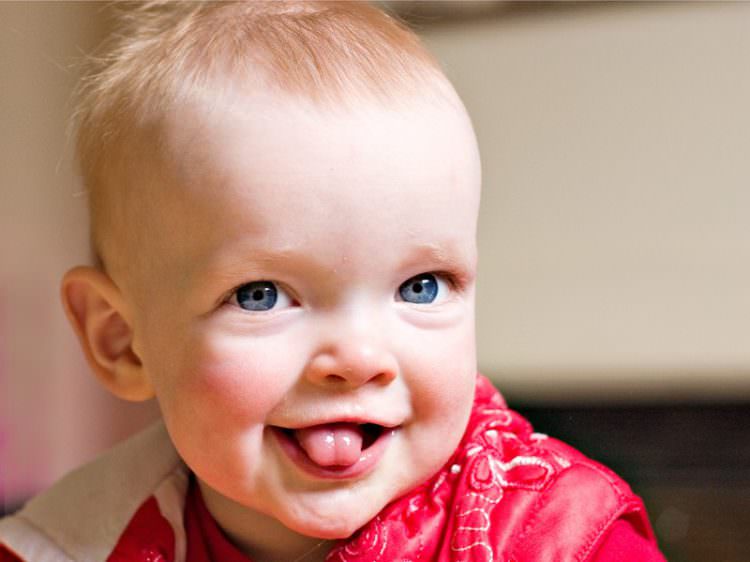
At the beginning this might happen in the form of pulling your clothes or pointing at a desired object. Later your child will be able to nod when asked a question, and use complex non-verbal communication such as picking up and handing you a pair of shoes to indicate it is time to go outside for a walk!
Speaking
Child speech emerges through several different stages of development. Starting at birth when your infant is crying, then after a few months those sounds will develop into ahh, ooh and iie (known as cooing). Soon after that your baby will produce chains of sounds such as ba-ba-ba, appropriately called babbling.
Slowly but surely more syllables and consonant sounds will be added and your baby starts to use certain words intentionally such as mama and dada, however at first he or she may be calling all grownups mama or dada, and it is typically not until between 11 to 14 months old that your toddler correctly uses mama to mean mum.
Next your child will start to talk baby talk, also known as jargon, which sounds a lot like speech, but using sounds that doesn’t make any sense. It is almost like your toddler is speaking a foreign language.
Step by step though more and more words will emerge from the gibberish, and by the time your toddler is 3 years old you will typically be able to understand 80% of what he or she is saying.
Learn more about the 27 Speech Development Milestones
Conversation
Infants learn very quickly to make their needs known by crying for attention. At about half a year old babies begin to communicate their desires in more ways than just crying. Around the time of their first birthday children usually begin to engage you in dialogue. Though you will not yet be able to understand much of what your toddler is saying, you will very likely get the sense that this is a you-talk-I-talk turn based conversational style of communication.
This is a great time to ask questions to your toddler. For instance if it is story time you can present two books and ask “do you want this book? Or that book?” your toddler will soon pick up that he or she is expected to provide a response, and may even be able to show you which story he would prefer to hear.
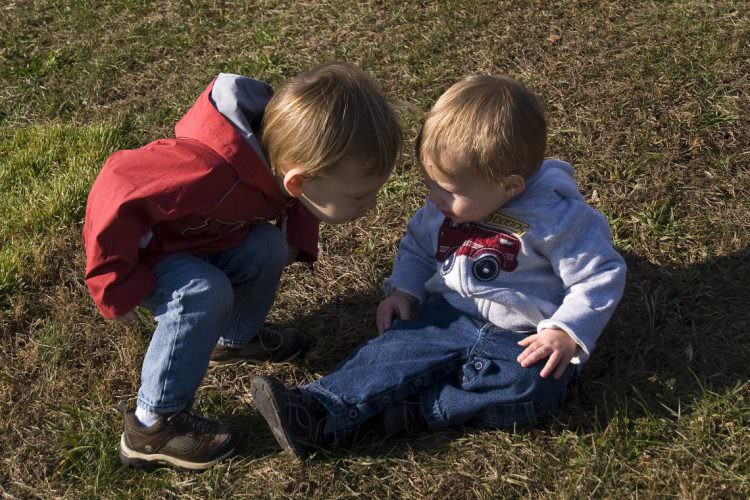
Sometime between two and three years old your toddler will be able to answer simple questions stating with what, who, where – such as “what is this?” and “where is daddy?”. Though at this stage your toddler typically will not yet be able answer “why” types of questions.
Around the time he or she is three years old your toddler will start asking a lot of what, when, and where questions, and should also soon be able to carry out a full conversation.
Expressive Vocabulary
It is usually not until their first birthday children begin to have an active vocabulary. First words will typically be something important and meaningful to your child, mama and dada are not uncommon first words (they also happen to be made of syllables that are easy for kids to produce).
Around 18 months old your toddler should have a vocabulary of 15 to 20 words that will grow to more than 200 by his third birthday.
Children learn to refer to themselves by their name around the time they are 18 to 24 months old, and around six months later they learn to use “I”, “me” and “my”.
At 18 months old your toddler should also be able to name an object when asked “what is this?” assuming that it is in his active vocabulary. Later at around two years old he or she will be able to name object in pictures and photos.
Read our complete guide to your child’s Vocabulary Development
Grammar and sentences
Soon after they have built a basic active vocabulary kids will start to combine two words together to more clearly get their meaning across. Though you will still need to make some educated guesses, does “mummy eat” mean he wants you to feed him? Or that a mummy ate his crayons?
Your toddler will first imitate phrases that he hears, then try to add more and more words to his own sentences, stringing three words together, then four and so on.
Next comes the use of past tense and plurals. You toddler will be experimenting a lot and get it wrong often. For instance he or she may say “foots” instead of “feet”, but that is how language learning is done. You can help by repeating the right words back to him or her – for instance if your child says “I doed it” you can reply “Yes, you did it!”.
Connection to other areas of Child Development
The healthy development of language is highly connected to your child’s overall development. For instance cognitive development plays an important role in learning words and acquiring vocabulary. Social and Emotional development is both influenced by language, and highly influence development of conversational skills and your child’s ability to express feelings through words and gestures.
Gross and Fine Motor skills are important as well since involving all the sense help stimulate the brain to better remember, it is quite literally learning by doing.
The takeaway here is that you can advantageously integrate language teaching in the activities you do to strengthen other areas of development.
Read about all the areas of child development
What if my child is a late talker?
Children acquire language skills at very different rates, if your baby or toddler is within the age ranges for achieving the different developmental milestones laid out in this guide then there should not be reason for concern.
If he or she is showing language delay or other language problems, then you should always consult your pediatrician. Most likely the first thing your pediatrician will do is to perform a hearing test to make sure you child hear normally. Not hearing well, or hearing loss due for instance to ear infection will obviously affect your child’s language learning ability.
Meanwhile there can be many other and complicated reasons your child is behind in learning to speak. If your child falling behind on a certain language development milestone check to make sure that he or she has achieved at least one of the previous two milestones.
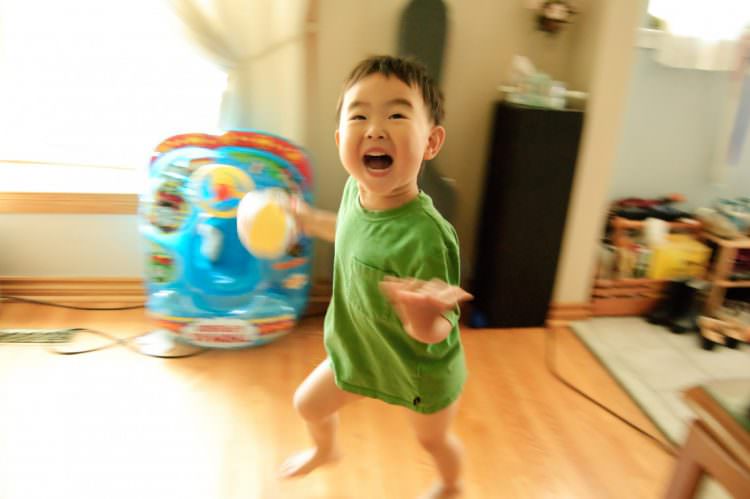
Fun and Educational Language Learning Activities
Learning your native language is a big job, but it also can and should be lots of fun! Babies and toddlers need lots of stimulation, creative games and exciting activities – but if you are like us you sometimes run out of fun topics and creative ways to play with your kid. Parenting at times can be hard!
That’s why we created ADAM & Mila as a place for parents to come together and share inspiration and ideas for fun and educational ways to help your child develop. We have collected lots of activities related to understanding words and learning to talk. Our activities are organized by each of the language development stages and development milestones so that you can quickly and easily pick the ones that match your child’s current needs.
Our community is here to help you, and now that you are here we hope you will help us in return by providing feedback on what you think are the best and greatest activities!





Leave a Reply